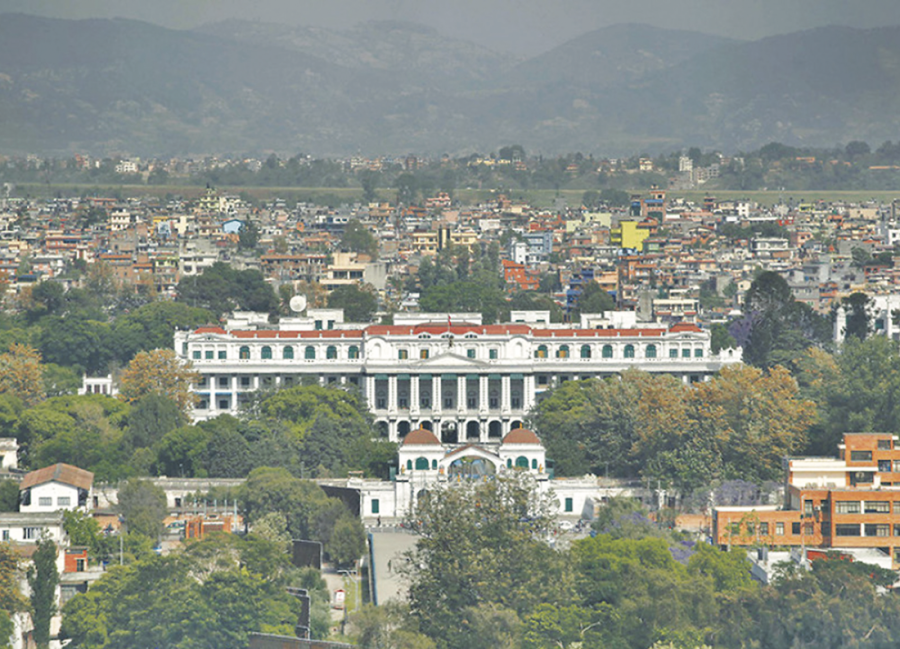Columns
Federal spirit in local elections
The parties should let their subnational organisational entities distribute election tickets.
Achyut Wagle
The completion of the first five-year term by democratically elected local governments under the 2015 Constitution is indeed an essential milestone towards institutionalising the country's federal system. For the subsequent tenure, the government has slated May 13, 2022, as the date for the local level elections that will elect 35,041 representatives in 753 municipalities (460 rural and 293 urban) and 6,743 wards within them. It may be recalled that the local elections in 2017 were held after a gap of 20 years. The local units have been substantially empowered with devolved authority on financial, quasi-judicial and developmental decision-making in addition to specific responsibilities assigned under Schedule 8 of the constitution.
The overall efficacy of the local governments during their five-year term may be varied across jurisdictions and easily contestable. But the achievements made, for example, in inclusive representation, particularly of women and Dalits, are beyond question. In 753 municipalities, the elected women representation makes up 41 percent of the total elected office-bearers. Among the 1,506 elected chief office bearers (mayor and deputy mayor in the municipalities and chairperson and vice-chairperson in the rural municipalities), 718 officials or 47.68 percent are women. Similarly, each ward has a Dalit woman member. This was made possible by several mandatory provisions in the constitution to ensure representation of the marginalised. The constitution also stipulates that political parties must field at least one woman candidate for the chief or the deputy chief at the local level.
Stellar performance
In terms of political experiment, the local units' successful completion of their tenure has reinforced the rationale of the polity. In many instances, like in the containment and management of the first wave of the Covid-19 pandemic, the performance of the elected representatives was stellar, to a large extent, across the country. But this enthusiasm gradually eroded in the later phases in the upper tiers of government, both provincial and federal, as they failed to live up to public expectations in promoting, facilitating and enhancing the role of the local governments. The Covid pandemic was only a test case of how mainly the federal government has generally chosen to interact or "behave" with the subnational governments. Also, the local governments provided a vast scope to accommodate and manage thousands of their ambitious, often young, cadres for the political parties. It definitely served as on-the-job training for the elected executives handling public office.
On the flip side, the elected local governments seemed overwhelmed, somewhat baffled, by the expanse of both the authority and the responsibility bestowed on them by the constitution and laws. Despite specific assignment by Schedule 8 (8) of the constitution about independently making credible provisions for primary and secondary education, only a few urban municipalities proved marginally capable of shouldering this responsibility. It is indicative that only devolution of authority without attendant due diligence on capacity will not bear the desired outcome. Similar capacity constraints in the elected executives in several other sectors, like natural resource management, health and entrepreneurial services, must be eased to make the federal system even moderately result-oriented, mainly in public service-deprived far-flung areas of the country.
Such capacity constraints also affected three other vital responsibilities assigned to municipal governments by the Local Government Operation Act 2017. First, the municipalities almost ubiquitously failed to effectively carry out the judicial function by the judicial committee as set out in Section 47 of the act. Lack of training, skills and, more often than not, limited formal higher education of the executive could only produce results far below the optimal expectation.
Second, for similar reasons, the constraints that glaringly surfaced was in financial resource mobilisation, formal budgeting and project selection. Section 65 of the act has a provision for a municipality-level Revenue Advisory Committee. But these committees were found to be somehow functional only in a few among the metropolises and sub-metropolises. Such inefficiency has led to not only limited collection of "own source" revenues by the municipalities, but also inability to spend the money available for capital expenditure. Incidentally, both these committees are headed by the deputy chief in each municipality.
Third, as pointed out by several reports, local fiscal governance remained problematic on many fronts. About 10 percent of rural municipalities failed to present their annual budgets in their respective assemblies for ratification. Almost 50 percent of the total 753 municipalities failed to follow the prescribed template in budget formulation, and many others (an estimated 30 percent) miserably failed in budget implementation. Lack of transparency and pervasive public procurement conflicts remain the most overarching issue. This has led to what is labelled as "uncontrolled corruption" at the local level.
God-sent opportunity
In light of these lessons from a full-tenure experience of local government functions under the federal system, the upcoming elections should serve as a god-sent opportunity for the political parties to field candidates who have proven calibre, education and willpower to shoulder these critical responsibilities of the local government. It is equally essential that the parties practise political federalism by providing enough autonomy to their subnational organisational entities to distribute election tickets to the candidates. The political gerontocracy that prevails in every party of national stature must now recognise that intra-party democracy is an inevitable prerequisite to make federal democracy functional and institutionalised.
The federal spirit must be upheld at each step of the election process by all stakeholders—the government, political parties and constitutional bodies like the Election Commission—to accommodate the lessons of the past towards consolidating the hard-earned political system. Overall, the first tenure of the local governments has raised real hopes. We now need to build on what has been achieved so far and consolidate the optimism on the system and its delivery thereof.




 18.12°C Kathmandu
18.12°C Kathmandu















